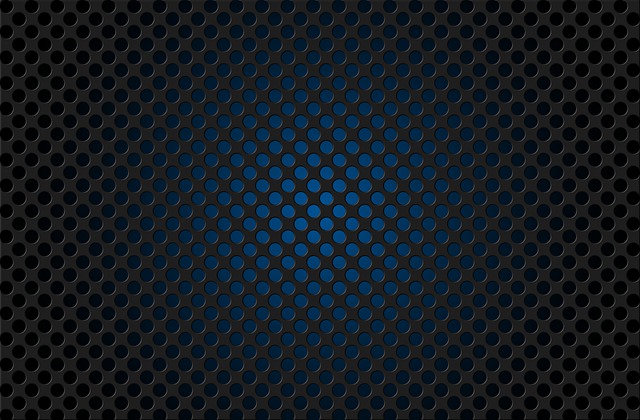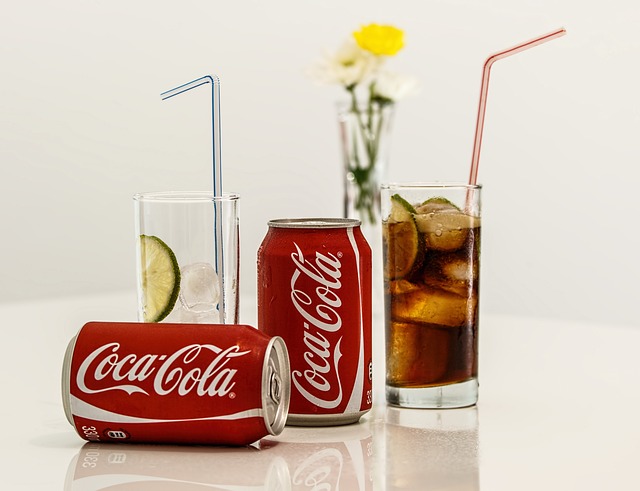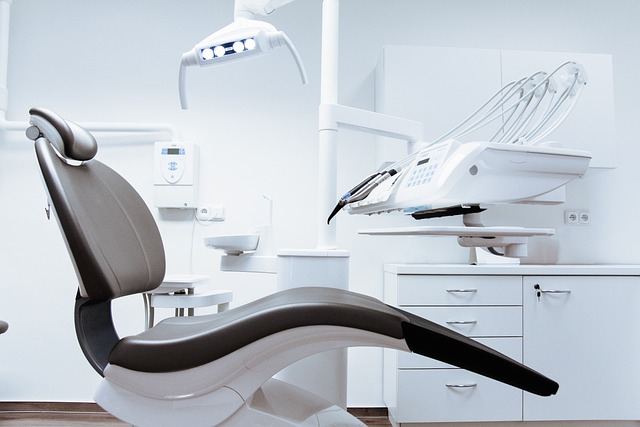Carbonation-free Delights: Exploring the Reason Behind No Bubbles post Tooth Extraction
Welcome to a world of carbonation-free delights! If you’ve recently had a tooth extraction, you may have noticed that your favorite fizzy beverages lose their signature bubbles. But fear not, we are here to shed some light on the reason behind this phenomenon. In this article, we’ll dive into the fascinating realm of post-tooth extraction and uncover why your sparkling drinks become bubble-less wonders. Get ready to discover the science behind your missing bubbles, and explore some alternatives that will still tickle your taste buds without harming your healing process. So sit back, relax, and let’s explore the intriguing world of carbonation-free delights!
1. Understanding the Importance of Post-Tooth Extraction Care
After undergoing a tooth extraction, it is crucial to provide proper care to ensure a smooth and speedy recovery. Following a few simple steps can greatly reduce the risk of complications and promote healing. Here are some essential tips and recommendations to help you understand the significance of post-tooth extraction care:
- Gentle oral hygiene: Maintain oral hygiene by brushing your teeth carefully, avoiding the extraction site for the first 24 hours. From the second day, gently rinse your mouth with a warm saltwater solution several times a day to keep the area clean.
- Bite on gauze: To control bleeding, gently bite down on a sterile gauze pad for about 30 minutes after the extraction. Replace the gauze as needed. If bleeding persists after a few hours, contact your dentist.
- Apply cold compress: Swelling and discomfort are common after an extraction. Applying a cold compress to the affected area for 15 minutes at a time can help reduce swelling and alleviate pain. Remember to use a cloth or towel as a barrier to protect your skin.
Continuing proper care post tooth extraction is crucial for a successful recovery. Remember to adhere to any specific instructions provided by your dentist, as every situation can be unique. By following these simple guidelines and seeking professional advice, you can ensure a smooth healing process and be back to your normal routine in no time!

2. Carbonation-free Delights: A Safe Choice after Tooth Extraction
If you’ve recently undergone a tooth extraction, it’s essential to take care of your oral health during the recovery process. One aspect to consider is what foods and beverages you consume during this time. Carbonation-free delights can be a safe and enjoyable choice that won’t interfere with your healing process. Here are some reasons why you might want to opt for these delightful treats:
Gentle on Your Healing Gums:
- Carbonation-free delights, such as smoothies or milkshakes, provide a soothing and refreshing treat without the fizzy bubbles that can irritate your healing gums.
- These treats are free from carbonic acid, which can potentially slow down the healing process and cause discomfort.
- By opting for carbonation-free beverages, you can give your mouth the rest it needs without compromising your enjoyment.
Nutrition-Packed Options:
- Carbonation-free delights also offer an opportunity to nourish your body with essential nutrients during this recovery period.
- Smoothies made with fruits and vegetables can provide valuable vitamins, minerals, and antioxidants, promoting faster healing and boosting your immune system.
- You can also include protein-rich ingredients like yogurt or nut butters in your carbonation-free treats, facilitating tissue regeneration and helping with pain management.
Remember, while carbonation-free delights can be a safe choice after tooth extraction, it’s always a good idea to consult with your dentist regarding any specific dietary restrictions or recommendations for your individual case. By opting for these gentle, nutrition-packed alternatives, you can satisfy your cravings and have a delightful recovery journey!

3. Why Carbonated Beverages are Not Recommended after Tooth Extraction
After undergoing a tooth extraction, it’s important to be mindful of what you consume during the healing process. While many foods and drinks are safe to consume, carbonated beverages, unfortunately, do not make the list. Here’s why:
Risk of Dislodging Blood Clot:
- Carbonated beverages are fizzy because they contain carbon dioxide gas, which creates bubbles.
- Drinking these beverages can cause the gas to get trapped in the extraction site, leading to uncomfortable sensations and the potential dislodging of the blood clot.
- A dislodged blood clot can result in a painful condition called dry socket, which can further delay the healing process.
High Sugar Content:
- Most carbonated beverages are laden with high amounts of sugar, including soda, energy drinks, and some carbonated juices.
- Consuming these sugary drinks can contribute to bacterial growth and plaque formation, increasing the risk of gum disease and tooth decay during the healing phase.
- Opting for healthier, sugar-free alternatives such as unsweetened herbal tea or water is highly recommended for a smoother recovery post tooth extraction.

4. Uncovering the Connection: Carbonation and Tooth Extraction Healing
When it comes to tooth extraction healing, there is a surprising connection that often goes unnoticed – carbonation. That’s right, your favorite fizzy drinks might actually impact how well your extraction site heals. Here’s what you need to know:
- Delay the carbonated indulgence: While it may be tempting to reach for a carbonated beverage right after your tooth extraction, it’s best to hold off. The carbonation can create excess pressure in your mouth, potentially dislodging the blood clot that forms to protect the extraction site. So, try to avoid carbonated drinks for at least the first 24-48 hours.
- Choose hydrating alternatives: Instead of carbonated beverages, opt for hydrating alternatives like water or herbal tea. Staying properly hydrated promotes healing and helps prevent complications like dry socket. Plus, it’s always a good idea to replenish fluids after any dental procedure.
While carbonation might not be the first thing on your mind when it comes to tooth extraction healing, it’s certainly worth considering. By avoiding carbonated drinks and opting for hydrating alternatives, you can give your mouth the best chance to heal efficiently and comfortably.

5. Exploring the Science behind the No Bubbles Rule
Have you ever wondered why some drinks are served without bubbles? There’s actually a scientific reason behind this, known as the “No Bubbles Rule.” Let’s dive into the fascinating world of carbonation and explore the science behind it!
Carbonation is the process of dissolving carbon dioxide gas into a liquid, creating those delightful bubbles we see in fizzy drinks. However, some beverages, like fine wines and spirits, are intentionally served without bubbles. Here’s why:
- Absorbing Aromas: Some drinks, especially complex ones, have a wide range of aromas that contribute to the overall taste experience. By reducing or eliminating bubbles, these drinks allow the aromas to linger longer, enhancing the enjoyment.
- Taste Sensation: The carbonation in a beverage can alter the taste perception. Without bubbles, the full range of flavors can be experienced in each sip, allowing you to savor the subtle notes and complexities of the drink.
- Preservation: In some cases, carbon dioxide can expedite the oxidation process, leading to the deterioration of flavors and quality over time. Serving without bubbles ensures better preservation, allowing the beverage to age gracefully.
So, the next time you come across a drink without bubbles, don’t be surprised! It’s all about enhancing the sensory experience and preserving the integrity of the beverage. Cheers to the fascinating science behind the “No Bubbles Rule”!
6. Delicious Alternatives: Satisfying Cravings while Promoting Healing
In your journey towards healing and wellness, it’s important to find delicious alternatives that not only satisfy your cravings but also promote healing. Luckily, there are plenty of options available that cater to various dietary needs, so you don’t have to compromise on taste or your health goals. Here are some mouthwatering alternatives to consider:
- Plant-based proteins: Whether you’re a vegetarian, vegan, or simply looking to reduce your meat intake, there is a wide array of plant-based proteins to enjoy. Foods like tofu, tempeh, lentils, chickpeas, and quinoa are not only packed with nutrients and fiber but also provide a satisfying and tasty substitute for meat.
- Gluten-free grains: For those following a gluten-free diet, grains like rice, quinoa, millet, buckwheat, and amaranth can be terrific alternatives. They can be used in a variety of recipes, from salads to side dishes, and even as a base for delicious grain bowls.
- Dairy substitutes: If you’re lactose intolerant or prefer to avoid dairy, there are numerous non-dairy alternatives available. Try swapping cow’s milk for almond, soy, coconut, or oat milk. These plant-based alternatives not only taste great but can provide essential nutrients like calcium and vitamin D as well.
Remember, experimenting with these alternatives can be fun and exciting, allowing you to discover new flavors and expand your culinary horizons. Embrace the delicious options that promote healing and nourish your body, while keeping your taste buds satisfied.
7. The Role of Carbonation in Delayed Healing after Tooth Extraction
In some cases, carbonated drinks can have a negative impact on the healing process after a tooth extraction. This is primarily due to two main factors:
- Dissolves blood clots: The carbonation in fizzy drinks has a tendency to dissolve blood clots that form in the extraction site, which are essential for the initial stages of healing. Without these blood clots, the wound is more exposed to bacteria, leading to a higher risk of infection.
- Delays bone formation: Another concern with carbonated beverages is their potential to delay the formation of new bone in the socket left by the extracted tooth. The acids present in carbonated drinks can interfere with the bone healing process, prolonging the recovery time.
It’s important to note that not all carbonated drinks are created equal. Some may have higher acidity levels than others, exacerbating the negative effects on healing. Additionally, consuming carbonated drinks through a straw can minimize contact with the extraction site, making it slightly less detrimental.
8. Tips for Enjoying Carbonation-free Delights without Compromising on Flavor
When it comes to enjoying carbonation-free delights, there’s no need to sacrifice flavor. Whether you prefer beverages without fizz or you just want a break from the bubbles, we’ve got you covered with some helpful tips. Follow these suggestions to savor the taste without compromising on the deliciousness:
- Experiment with flavors: Just because a drink is carbonation-free doesn’t mean it has to be boring. Explore a wide range of flavors like fruity, herbal, or even spicy options. Try different combinations to find your perfect match and enhance your taste buds’ experience.
- Opt for natural sweeteners: If you enjoy a touch of sweetness in your beverages, consider using natural sweeteners instead of artificial ones. Options like honey, agave nectar, or stevia can add a delightful sweetness without the need for carbonated drinks.
- Infuse with fresh ingredients: Upgrade your carbonation-free drinks by infusing them with fresh ingredients. Add slices of fruits like lemon, cucumber, or strawberry into water for a refreshing twist. You can also experiment with herbs like mint or basil to create unique and flavorful concoctions.
Remember, enjoying carbonation-free delights is all about expanding your palate and finding new and exciting combinations. Feel free to get creative and explore various options to satisfy your flavor cravings without the fizz!
9. Boosting Recovery: How Nixing Carbonation Benefits Your Healing Process
When it comes to recovering from an injury or surgery, there are many factors that can impact your healing process. One aspect that may surprise you is the effect that carbonation can have on your body’s ability to heal. By cutting out carbonated beverages from your diet, you can give your body a much-needed boost in its recovery journey.
Here are three ways nixing carbonation can benefit your healing process:
- Reduced inflammation: Carbonated drinks often contain high levels of carbon dioxide, which can lead to increased inflammation in the body. By eliminating these fizzy drinks, you can help reduce swelling and inflammation at the site of your injury or incision, allowing your body to heal more efficiently.
- Better nutrient absorption: The bubbles in carbonated drinks can disrupt the digestive process, hindering the absorption of essential nutrients your body needs for healing. By opting for non-carbonated options like water or herbal tea, you can enhance your body’s ability to take in and utilize vital nutrients, giving your healing process a valuable advantage.
- Improved hydration: While carbonated beverages may be refreshing, they can actually contribute to dehydration. By replacing these drinks with hydrating options such as plain water or electrolyte-rich fluids, you can optimize your body’s hydration levels, which are crucial for effective healing.
By making the simple choice to eliminate carbonation from your diet, you can support your body’s healing process and aid in a faster, more efficient recovery. Give your body the best chance to heal by opting for non-carbonated beverages and enjoy the benefits they bring to your overall well-being.
10. Discovering the Best Beverages for a Gentle Post-Extraction Experience
When it comes to post-extraction recovery, finding the best beverages can make a world of difference in your comfort and healing. Proper hydration is key during this time, but it’s equally important to choose drinks that won’t irritate your healing gums. Below, we’ve curated a list of gentle and soothing beverages that will help you stay hydrated while promoting a speedy recovery:
- Water: Hydrating and essential for your recovery. Sip on cool or room temperature water throughout the day to stay properly hydrated.
- Herbal teas: Choose caffeine-free options like chamomile or peppermint tea. They provide soothing relief and help reduce inflammation in your mouth.
- Broths and soups: Opt for clear broths or pureed soups. They provide nourishment and are easy to consume while minimizing discomfort.
- Smoothies: Blend soft fruits like bananas or berries with yogurt or milk for a nutritious and easy-to-swallow treat. Avoid using a straw to prevent any complications.
- Fruit-infused water: Add slices of your favorite fruits like lemon, cucumber, or mint to your water for a refreshing twist.
It’s important to avoid beverages that can hinder the healing process, such as carbonated drinks, hot beverages, and alcohol. Carbonated drinks can introduce air into the extraction site, potentially causing pain or discomfort. Hot beverages, including coffee and tea, should be avoided as they can disrupt blood clot formation. Alcohol should be avoided as it may interfere with your medications and slow down the healing process. Remember, always consult with your dentist or oral surgeon for personalized recommendations based on your specific case. By selecting the right beverages, you can make your post-extraction experience as smooth and gentle as possible.
Frequently Asked Questions
Q: Why should I avoid carbonated drinks after a tooth extraction?
A: Carbonated drinks can interfere with the healing process and lead to complications such as dry sockets, delayed healing, and increased pain. It’s best to avoid them to ensure a smooth recovery.
Q: What are dry sockets and how can carbonated drinks worsen the condition?
A: Dry sockets occur when the blood clot, which forms after tooth extraction, gets dislodged or dissolves prematurely. Carbonated drinks create suction in the mouth and can dislodge the blood clot, exposing the nerves and bone, leading to intense pain and delayed healing.
Q: Are all carbonated drinks harmful, or is it only limited to certain types?
A: All carbonated drinks have the potential to hinder the healing process post tooth extraction. This includes soda, sparkling water, energy drinks, and fizzy beverages containing carbonation.
Q: How long should I avoid carbonated drinks after a tooth extraction?
A: Dentists typically advise avoiding carbonated drinks for at least a week after a tooth extraction. However, it’s best to consult your dentist for specific instructions tailored to your situation.
Q: What alternatives can I enjoy instead of carbonated drinks during the recovery period?
A: There are plenty of carbonation-free options you can try. Opt for still water, herbal teas, fruit-infused water, milk, natural juices, or smoothies. These options will keep you hydrated without posing any risks to your healing process.
Q: Can I drink carbonated drinks after the healing period is over?
A: Yes, once you have fully healed, you can resume consuming carbonated drinks. However, it’s always advisable to drink them in moderation to maintain good oral health and minimize any potential negative effects.
Q: Are there any other foods or beverages I should avoid after tooth extraction?
A: Yes, besides carbonated drinks, you should also avoid hot drinks, alcohol, spicy foods, and hard or chewy foods that can disturb the surgical site and impede the healing process. It’s important to follow your dentist’s instructions to promote a speedy and trouble-free recovery.
Q: What other precautions should I take for a successful tooth extraction recovery?
A: To ensure proper healing, it’s crucial to maintain good oral hygiene. Gently brush your teeth, but avoid the extraction site initially. Rinse your mouth with warm saltwater after meals to keep the area clean. Additionally, follow any prescribed post-operative care instructions provided by your dentist.
Q: Should I reach out to my dentist if I encounter any issues during the healing process?
A: Absolutely! If you experience excessive pain, swelling, bleeding, or any other concerns, it’s essential to contact your dentist promptly. They will be able to provide guidance and address any possible complications.
Q: How long does the recovery process usually take after a tooth extraction?
A: The recovery time can vary depending on the complexity of the extraction and individual healing abilities. In most cases, the initial healing period spans about one to two weeks. However, complete healing may take up to several months. It’s important to be patient and follow your dentist’s instructions for the best outcome.
Conclusion
In conclusion, we have delved into the intriguing world of carbonation-free delights and the reason behind avoiding fizzy beverages after a tooth extraction. We have learned that the absence of bubbles is a crucial aspect of promoting proper healing and ensuring a comfortable recovery. By abstaining from carbonated drinks during this period, you are giving your body the best chance to heal efficiently and minimize any potential complications.
Remember, this doesn’t mean you have to give up on your favorite beverages entirely. There are plenty of delicious alternatives, such as cold water, herbal tea, or fresh fruit juices, which can still satisfy your taste buds without generating those unwanted bubbles. You can always experiment with various flavors and combinations to find the perfect carbonation-free delight that suits your palate.
By prioritizing your dental health and making the conscious decision to avoid carbonated drinks post tooth extraction, you are taking an active role in your own healing process. Your dentist or oral surgeon will surely appreciate your commitment to a smooth recovery, and you’ll be back on track to enjoying fizzy delights in no time.
So, whether you’re sipping on a refreshing glass of infused water or discovering the delightful taste of a homemade fruit punch, remember that your dental health is worth every effort. Cheers to a speedy recovery and a lifetime of sparkling smiles!





